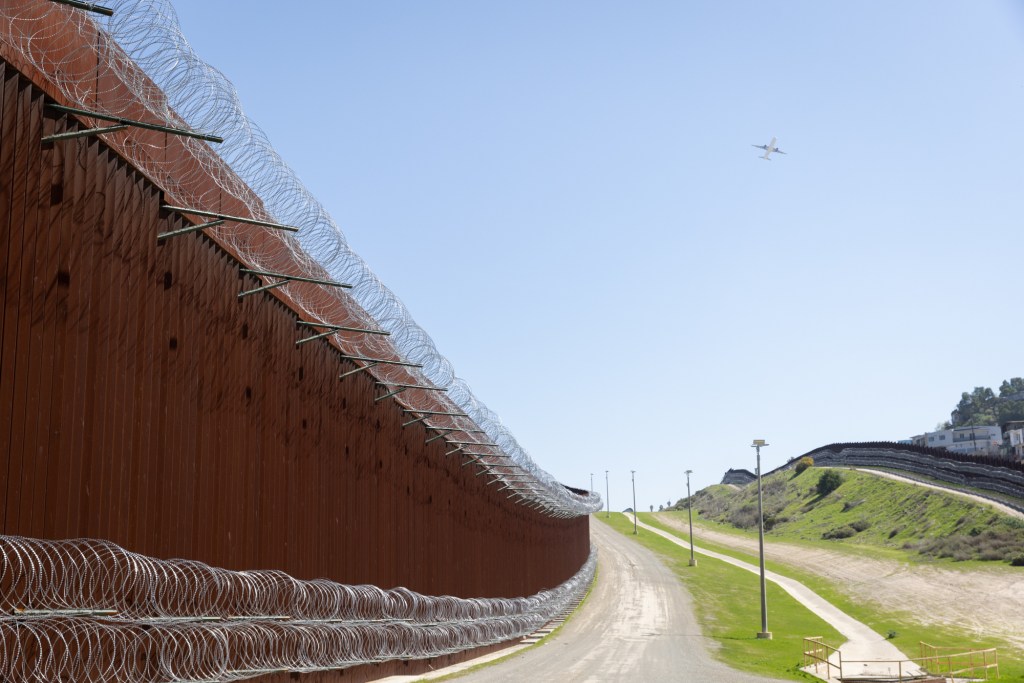I was about 7 years old when I visited a family member who had been detained by immigration enforcement at a workplace raid. It was the 1990s, during a wave of immigration enforcement actions across the country. I remember sitting on a cold metal chair, staring across a glass divider at someone I loved. I didn’t understand the language of “enforcement,” “detention” or “deportation.” But I understood the fear.
Now, decades later, across the country and here in San Diego, I see that fear reflected in the faces of those witnessing their parents or loved ones being arrested during ICE raids. I think about the weight of those moments, how they don’t fade but settle in our hearts and stay with us for a lifetime.
What children experience is not policy, it is heartbreak. And we cannot keep repeating it.
I devote my life to working for a global Christian humanitarian-aid organization. I do this because I believe every human, no matter their origin or status, deserves the opportunity to flourish and thrive.
In my role, I spent the past year and a half supporting collaborative humanitarian efforts at an open-air campsite San Diego known as “Whiskey 8,” where families and individuals arriving between ports of entry would come to seek asylum. Whiskey 8 is located in the far southwest corner of San Diego, near Monument Road, just before Border Field State Park. Since mid-February, the site has been quiet. No new arrivals, which means no families or children. This silence is not accidental. The families are replaced by wire barriers and Marines deployed to the wall. What is being communicated is less about welcome and more about warning.
It’s not just what we are seeing at the border. I am deeply concerned by the continued rollout of restrictions for these families now stuck in Tijuana, others who now face travel bans and the increased ICE enforcement by the Trump administration. These policies are not neutral. They are racially targeted, punitive and dehumanizing.
This is not new. It reminds me of 2016, when Haitian migrants arrived at the U.S.-Mexico border after fleeing instability and economic collapse in their own country. They were detained and deported. Then, in 2018 and 2019, when caravans of asylum seekers, who were primarily from Central America, were met with cruel deterrence tactics like the Remain in Mexico policy. Back then, families were told there was “no legal way in.” But just a few years later, when Ukrainians fled war, the system suddenly bent to create new pathways.
It is unjust and divisive that the U.S. immigration systems can adapt, but only for some. This most recent or newest administration’s travel ban continues a pattern that targets predominantly Black and Brown countries like Haiti, Venezuela, El Salvador, Sudan, Iran and Afghanistan.
Fear is the driving force. Pain and chaos are the byproducts. Between continued press releases and exhaustive executive orders, people are losing their lives, their families and dignity. I can still see the faces of those I encountered at the open-air campsite risking everything and those stranded in constant limbo in Tijuana. Like the Venezuelan family I met in January at a shelter whose CBP One appointment had been cancelled by one of the executive orders. As they shared their story, you could hear the desperation in their voices. They were longing for safety not just for themselves but especially for their two young children.
We also can’t deny the fiscal cost, because it is staggering. The Trump administration is following through on its plan to increase ICE enforcement to a goal of 3,000 arrests per day. Billions of taxpayer dollars are spent annually to fund enforcement, detention centers and digital infrastructure like the CBP Home app, which prioritizes deportations instead of creating legal migration pathways. We are no longer prioritizing family flourishing or welcome; instead, we have chosen family separation as a form of punishment.
As a Christian, I can’t reconcile or fully understand how some might claim to love God and neighbor while supporting policies that treat Black and Brown families as expendable. We do not need any more enforcement. We need solutions that are people-centered. We need the courage to see one another as fully human.
Reza is the director of U.S.-Mexico Border Engagement with World Relief and a writer who lives in San Diego.
